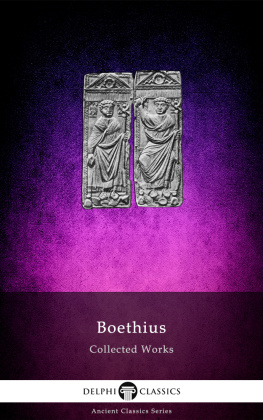Ross Laidlaw - Theodoric
Here you can read online Ross Laidlaw - Theodoric full text of the book (entire story) in english for free. Download pdf and epub, get meaning, cover and reviews about this ebook. genre: Adventure. Description of the work, (preface) as well as reviews are available. Best literature library LitArk.com created for fans of good reading and offers a wide selection of genres:
Romance novel
Science fiction
Adventure
Detective
Science
History
Home and family
Prose
Art
Politics
Computer
Non-fiction
Religion
Business
Children
Humor
Choose a favorite category and find really read worthwhile books. Enjoy immersion in the world of imagination, feel the emotions of the characters or learn something new for yourself, make an fascinating discovery.
- Book:Theodoric
- Author:
- Genre:
- Rating:4 / 5
- Favourites:Add to favourites
- Your mark:
- 80
- 1
- 2
- 3
- 4
- 5
Theodoric: summary, description and annotation
We offer to read an annotation, description, summary or preface (depends on what the author of the book "Theodoric" wrote himself). If you haven't found the necessary information about the book — write in the comments, we will try to find it.
Ross Laidlaw: author's other books
Who wrote Theodoric? Find out the surname, the name of the author of the book and a list of all author's works by series.
Theodoric — read online for free the complete book (whole text) full work
Below is the text of the book, divided by pages. System saving the place of the last page read, allows you to conveniently read the book "Theodoric" online for free, without having to search again every time where you left off. Put a bookmark, and you can go to the page where you finished reading at any time.
Font size:
Interval:
Bookmark:
Ross Laidlaw
Theodoric
HISTORICAL NOTE
AD 468, when this story begins, was a critical year for the Western half of the Roman Empire; nothing less than its survival or extinction hung in the balance. How had this moment of truth come about?
The beginning of the fifth century had witnessed successive waves of barbarians Visigoths, Vandals, Suevi et al. break through the Wests frontiers and rampage through Gaul and Spain, with Britain being abandoned in the chaos. But cometh the hour, cometh the man. Just when it seemed that nothing could halt the Wests slide towards disintegration, a remarkable Roman general, Constantius, took on the German invaders and forced them to settle peacefully on Roman soil as federate guests. After his premature death, Constantius work was continued and consolidated by an even greater Roman commander, Flavius Aetius. For thirty years, Aetius was able, most of the time, with the help of his allies the Huns, to maintain stability and some form of imperial control. Ironically, it was the Huns, a formidable horde of nomadic horse-archers from Central Asia who, by pressing the German tribes from the rear, had set off a chain reaction of migration resulting in the barbarian invasions. These were largely confined to the West, whose long Rhine-Danube frontier was especially vulnerable to attack by the confederations of German tribes beyond the northern banks. In contrast, the Eastern Empire wealthy, stable, the home of ancient civilizations had only the Lower Danube frontier to defend; also it became adept at passing on barbarian invaders, such as Alarics Visigoths, to the West. (Persia, to the east, potentially a far greater threat than any barbarian confederation, was a civilized power which on the whole kept its peace treaties with Rome.)
The great exception to Aetius entente with the German invaders was Gaiseric, king of the Vandals. As ambitious as he was cunning and cruel, in 429 Gaiseric had transported his tribe from Spain across the Straits of Gibraltar, wrested North Africa the Wests richest and most productive diocese from Roman control, and set up an independent Vandal kingdom in its place. Unlike other German immigrant leaders, Gaiseric never showed the least desire for an accommodation with Rome, towards whom he maintained a stance of unvarying hostility.
In 451, Aetius policy of forging bonds with the federates was triumphantly vindicated. In that year, his old friend Attila, king of the Huns, abandoned a long-running campaign against the Eastern Empire to launch a full-scale attack on the West. Heading a coalition of Roman troops and German confederates, Aetius defeated Attila and his Huns in an epic battle on the Catalaunian Plains the Wests greatest, though final, victory. Yet from this high point things began to go rapidly downhill for the West. Two years later Attila died, then in the following year, 454, Aetius was murdered by his jealous emperor, Valentinian III, himself assassinated in 455 by loyal followers of Aetius, thus ending the long Theodosian dynasty. (Whatever its faults, the House of Theodosius had provided a valuable measure of stability.) With the threat of Attila gone, and no general of the stature of Aetius to keep them in line, the federates took advantage of the constitutional vacuum resulting from the murder of Valentinian, and began to flex their muscles with a view to expanding their territories.
There followed in rapid succession four further reigns, the emperors virtual appointees of the new Master of Soldiers, Ricimer, the first German to fill the post for half a century. Meanwhile, the Western Empire, weakened by protracted haemorrhaging of taxes, troops and territory, was beginning to unravel, the federates held in check from an all-out land-grab only by wariness concerning possible countermeasures by the powerful Eastern Empire acting in concert with the Western government. Then, in 467, the storm-clouds gathering over the West suddenly rolled back, as circumstances combined to promise a real hope for recovery. A charismatic new emperor, the fifth since Valentinian, ascended the throne of the West, in parallel with the devising of a Grand Plan for finally driving the Vandals from Africa. (More than one abortive attempt had already been made.)
This emperor, Anthemius, seemed an ideal choice to head a Western recovery. Polished and affable, approved by Ricimer and having the full backing of his promoter, the Eastern emperor, Leo, Anthemius came with impeccable credentials. These were: successful campaigning as an Eastern general; a distinguished family background; named consul for 455 and Patrician; marriage to the daughter of the late Eastern emperor Marcian; and near elevation to the Eastern purple on Marcians death. If anyone could restore stability to the West, that man, it seemed, was Anthemius.
He made an auspicious start. His arrival in Gaul at the head of a considerable force drawn from the Roman field army of Illyricum, cowed the federates there Franks, Burgundians, and Visigoths into, if not quite submission, at least acquiescence. (In set-piece battles, as the barbarians knew to their cost, properly led Roman troops would always beat them. Only overwhelming numbers had enabled them to establish themselves on Roman soil. Now, the prospect of East Roman reinforcements descending on them if they stepped out of line encouraged them to adopt a posture of appeasement.) Almost to a man, the Gallo-Roman aristocracy, whose loyalty to the centre had become eroded by the necessity of making terms with the dangerously volatile settlers in their midst, flocked to declare allegiance to their new head of state. (The cursus publicus* we know was still functioning.)
But, as everyone knew, the main plank of any scheme to revive the fortunes of the West consisted not in tweaking the balance of power in Gaul, but in reconquering North Africa. The potential benefits were enormous. The immediate effect would be a massive injection of revenue into the cash-strapped Treasury in Ravenna. With fresh blood pumping through its fiscal arteries, the West could replenish its shrunken, decimated field armies, and begin the process of re-establishing imperial authority. Peter Heather, in his brilliantly perceptive The Fall of the Roman Empire, says it all: The knock-on effect of a decisive victory over Geiseric. . would have been far-reaching. With Italy and North Africa united, Spain could have been added to the new western power-base. . Then, once Hispanic revenues had begun to flow in again, . Visigoths and Burgundians could have been reduced to much smaller enclaves of influence [in Gaul]. . The Roman centre would have become once again. . dominant. . In addition, Britain (which had never been officially written off, and where Saxon settlement had only just begun) might have been scheduled for re-occupation.
Like the thinking behind the Spanish Armada, the strategy of the invasion was to disembark a huge sea-borne army on the coast of Africa, bring Gaiseric to battle, then smash him. Before enlarging on this plan, it should perhaps be asked: why was the East willing to commit its resources on a massive scale to rescue its beleaguered partner? First, Gaiseric was a thorn in the flesh of both Empires; as the only barbarian leader with a fleet (of Roman-built vessels) he had become a serious nuisance to the East, disrupting sea-borne trade by raids and piracy. Second, the Eastern emperor, Leo, mindful that Anthemius had come within a whisker of being elevated to the purple, was only too willing to have a potential rival removed as far away as possible and kept there. (There is no evidence that Anthemius had accepted being passed over with anything other than good grace; but in the unforgiving world of Roman power politics it was best to take no chances.) Third, although East and West had in many ways drifted apart during the seventy-three years since their formal separation, there still existed an emotional attachment to the concept of the One and Indivisible Empire rather like the ties binding the British Commonwealth, and before that the Empire upon which the Sun Never Sets. (The late great Peter Ustinov had a delicious story about when, arriving at his first school, he was confronted in the hall by a large painting. It depicted a Boy Scout gazing at a map of the world, beside which stood Jesus Christ pointing to the red patchwork of the British Empire!)
Font size:
Interval:
Bookmark:
Similar books «Theodoric»
Look at similar books to Theodoric. We have selected literature similar in name and meaning in the hope of providing readers with more options to find new, interesting, not yet read works.
Discussion, reviews of the book Theodoric and just readers' own opinions. Leave your comments, write what you think about the work, its meaning or the main characters. Specify what exactly you liked and what you didn't like, and why you think so.










